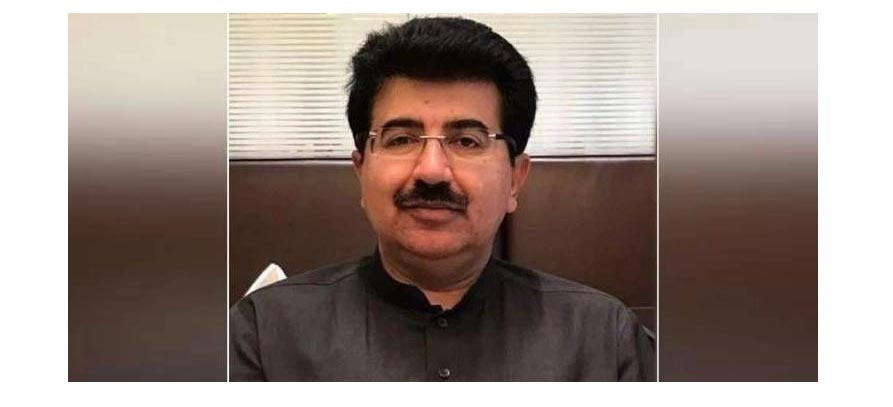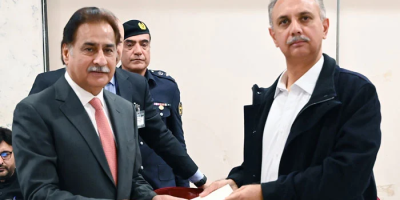Sanjrani succeeds in neutralizing PTI members against no confidence move

QUETTA, Sep 19 (DNA): Though the threat of succession of the
no-confidence motion against Balochistan Chief Minister Jam Kamal has
not been ended, Senate Chairman Sadiq Sanjrani Sunday succeeded to
neutralize Pakistan Tehreek-e-Insaf (PTI) members.
According to a private channel report Sunday, Sanjrani has been
succeeded in his mission to thwarting the no-confidence motion against
the CM of the majority party in the Balochistan Assembly, the
Balochistan Awami Party (BAP) with 24 legislators.
During his visit to Quetta on Sunday, the Senate chairman made contacts
with the ruling party members and impressed them in favour of continuing
their support to the sitting CM Jam Kamal Khan Alyani.
The Senate chairman ensured the annoyed members of the PTI that their
concerns would be addressed within the next 15 days so they should not
be a part of the no-confidence motion against the Balochistan CM.
Later, Sanjrani also held a meeting with Sardar Akhtar Khan Mengal, Head
of the Balochistan National Party-Mengal group (BNP-M) at his residence.
The BNP-M has 10 seats in the Balochistan Assembly and is a part of the
opposition alliance right now.
Sanjrani condoled with the BNP-M chief over the demise of his father,
veteran political figure of left-wing in Pakistan Sardar Atta Ullah Khan
Mengal.
Pertinent to mention here that treasury benches have a total of 41 seats
against the opposition who has only 23 seats in the Balochistan
Assembly. The PTI has only seven seats and is a part of the government
alliance. There is one independent legislator in the house too. DNA
====
Related News

PM’s aide calls for national climate risk management strategy to tackle disasters
ISLAMABAD, Jan 16 (APP/DNA):Coordinator to the Prime Minister for Climate Change, Romina Khurshid Alam emphasizedRead More

PTI demands CJP-led probe into May 9, Nov 26 events, political prisoners’ release
ISLAMABAD, JAN 16 (DNA): The Pakistan Tehreek-e-Insaf (PIT) on Thursday finally presented its demands inRead More


Comments are Closed